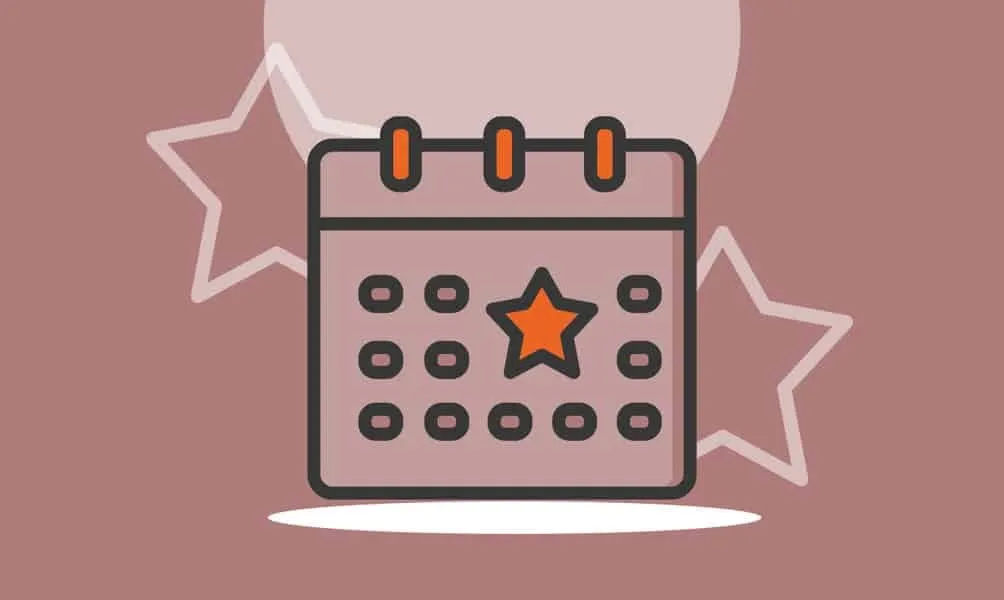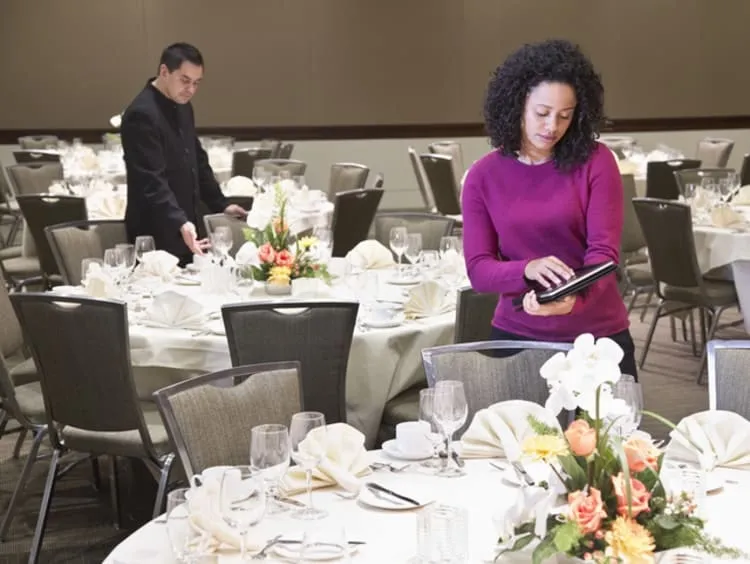Thinking of starting your own party planning business? You're not alone. The U.S. event planning industry is worth over $5.6 billion (IBISWorld, 2024)—and growing fast.
Whether it’s birthdays, weddings, or corporate events, clients are looking for party planners who can make their event stress-free and unforgettable. This guide breaks it down for you real steps, smart tips, and practical tools you can actually use.
If you’ve got a knack for organizing events (and making people smile), this is your sign to turn that skill into a business. Let’s get your planning business off the ground.
What Is a Party Plan Business?

A party plan business is a type of event planning business where you help people organize and run fun events—like birthday parties, small events, or even corporate events. Starting your own event planning business puts you in control of your career and schedule
Think of it as turning celebrations into a service. Many party planners work with local businesses and offer event planning services like setup, decoration, and guest coordination.
If you’ve ever helped throw a great party and thought, “I could do this for others,” that’s exactly how many planning businesses get started.
Is the Event Planning Business Profitable?
Yes, it can be very profitable—if done right. The event planning industry in the U.S. is valued at over $5.6 billion (IBISWorld, 2024). Many event planners run a small event planning business from home with low startup costs.
You don’t need a big team to get started—just solid planning, a few local businesses to work with, and a clear business plan. As planning businesses grow, they often see repeat business from satisfied clients, which boosts profit over time.
Key Steps to Start an Party Planning Business

1. Pick Your Party Planning Niche
If you want to start an event planning company, focus first on learning what clients value most. Don’t try to plan everything for everyone. Choose a specific type of event you enjoy and understand. It could be birthday parties, children’s parties, wedding events, or corporate events.
Why it’s important: When you focus on one niche, it’s easier to market your services and become known as an expert in that area. Clients trust specialists more than generalists. Also, your costs and planning process become easier to manage.
How to do it:
- Think about your strengths. Do you love working with kids? Start a small event planning business for children’s birthdays.
- Prefer formal settings? Consider corporate events or weddings.
- Do a bit of market research to see what kind of events are popular in your area.
2. Choose a Business Name and Register It
Your business name is how people will recognize and remember you. It should be easy to spell, catchy, and clearly related to your service.
Why it’s important: A good name builds your brand identity. Registering it protects your legal rights and makes your planning business look more professional to potential clients and local businesses.
How to do it:
- Start by brainstorming names that reflect your niche.
- Once you’ve picked a favorite, check if the domain name is available online.
- Then, register your name with your state (check state business laws for steps).
- Also, set up your official accounts—like email and social handles—to match.
3. Write a Solid Business Plan

A business plan is your roadmap. It outlines your goals, pricing, target market, services, and how you'll grow.
Why it’s important: Without a clear plan, it’s easy to waste time or money. A solid business plan helps you stay focused. It's also essential if you want to secure funding or work with vendors and professional organizations.
According to SCORE, business owners with written plans are 2x more likely to grow.
How to do it:
Include key parts like:
- Your niche and services (event planning services)
- Budget and startup costs
- Marketing plan and brand messaging
- Financial projections and a basic financial plan
- How you'll stand out in a competitive industry
Use free templates or planning tools to make it easier. And don’t forget to add your goals for building repeat business from satisfied clients.
4. Do Thorough Market Research
Market research helps you learn what people want, what other party planners offer, and how much clients are willing to pay.
Why it’s important: If you skip this step, you might waste money on services no one needs. Thorough market research helps you discover your target market, spot gaps in your area, and avoid copying the wrong competition.
How to do it:
- Talk to friends, parents, or small local businesses and ask what kind of events they need help with.
- Check what party planning businesses near you are charging.
- Use free tools like Google Trends or Facebook groups to explore popular party themes and demand.
- Write down everything. This will shape your services, pricing strategy, and marketing plan.
Example: You might discover that in your town, there’s demand for birthday parties for kids—but no one offering full-service planning for children’s parties. That’s your gap.
5. Set Up Your Office and Supplies
This is where you’ll plan your events, store your tools, and talk to potential clients.
Why it’s important: Even if you’re just starting, a tidy and functional workspace keeps you organized. It also helps you look professional—especially if clients visit or you work with local businesses.
How to do it:
- Use a corner in your home with good lighting. No need to rent expensive office space or a temporary meeting room.
- Make a checklist of what you need: a personal computer, a phone, printer, notebooks, and folders for client files.
- Keep a shelf or storage box for party supplies like banners, candles, and sample decor.
- Back up files regularly and keep a shared online calendar to manage past events, upcoming deadlines, and payments.
- Make sure to get liability insurance to protect yourself against any event mishaps or damage
Tip: If you’re planning on-site setups, keep a go-bag of essentials like scissors, tape, markers, and safety pins. It saves you when things go wrong.
6. Build a Network of Reliable Suppliers

These are the people you’ll rely on for food, balloons, DJs, venues, cakes, and more. Your party planning business can’t run smoothly without them.
Why it’s important: When you work with trusted suppliers, your events run better. Clients are happier, and you build a positive reputation. It also helps reduce last-minute surprises and unexpected challenges.
How to do it:
- Start local. Call florists, decorators, bakers, and venues. Ask if they work with event planners and offer vendor discounts.
- Go for quality, not just price. Cheap vendors often lead to problems.
- Keep a list of backup suppliers in case your go-to contact is unavailable.
- Get everything in writing. Contracts, delivery times, payment terms—keep it all clear.
Pro tip: Build strong relationships. Invite your top suppliers to networking events or refer them to others. A strong network often leads to referral work for you too.
7. Create Event Packages and Rates
This is where you decide what services to offer and how much to charge. Your packages should match your skills and the needs of your target market.
Why it’s important: Clear packages make it easier for potential clients to understand what they’re getting. It also helps you look professional and prepared—even if you’re new.
How to do it:
- Start with 2–3 simple packages like "Basic Setup," "Full Party Planning," or "Custom Events."
- Include common services like venue setup, theme ideas, and managing party supplies.
- Be upfront about your party planner rates. Avoid hidden costs—people hate surprises.
- Compare your pricing with other party planners in your area by doing market research.
- Test your pricing. If no one bites, adjust. That’s normal at the start.
Pro Tip: Make one package focused on birthday parties or small events if you’re targeting families or local businesses.
8. Focus on Branding and Online Presence
Your brand identity is how people recognize you. It includes your business name, style, voice, and visuals. Your online presence is how people find you—especially through Google and social media.
Why it’s important: In the event planning industry, most clients Google you before contacting you. If your website or Instagram looks messy or empty, you’ll lose them. First impressions matter—online and offline.
How to do it:
- Pick a simple, catchy business name that fits your niche.
- Set up a free website (try Wix or WordPress) with photos, service info, and client testimonials.
- Claim your Google Business Profile. It helps local clients find you.
- Be active on Instagram or Facebook. Post photos from past events (even mock setups).
- Use your brand colors, fonts, and tone everywhere—from flyers to DMs.
Fun Tip: Use Canva to design your own marketing materials—business cards, social banners, and more.
The party planning industry is competitive, but full of room for fresh ideas and new talent
9. Get Your First Clients (Even If It’s Free!)
When you're starting out, don’t wait for perfect, paying clients. Go get practice.
Why it’s important: You need experience, photos, and reviews to build trust. Even one great event can give you satisfied clients, referrals, and repeat business.
How to do it:
- Offer to plan a free or low-cost party for friends, family, or neighbors.
- In return, ask for an honest client testimonial and permission to use photos.
- Reach out to small businesses (like bakeries or decor shops) and offer a joint promo event.
- Share every event you do on social media and tag the people involved.
- Collect contacts from these early events and follow up when you're ready to charge full price.
Real Talk: Everyone starts somewhere. Even the most experienced event planners did a few free gigs in the beginning. Use this time to learn and grow.
10. Stay Ready for Growth
As your party planning business grows, things will get busy—fast. You’ll have more bookings, more party planners to manage, and bigger events like corporate events or even wedding planner gigs.
Why it’s important: If you're not ready, growth can turn into stress. But with the right tools and mindset, you’ll handle more work and still keep your clients happy. That’s how you build a strong planning business with repeat business and a positive reputation.
How to implement:
- Build systems early. Use spreadsheets, planning apps, and templates.
- Keep updating your business plan and financial plan every few months.
- Hire part-time help or partner with experienced event planners when needed.
- Keep your marketing materials fresh and invest in your brand identity.
- Stay in touch with satisfied clients—they often become your best source of referrals.
Real talk: Growth feels good, but only when you're ready for it. Plan now so you’re not playing catch-up later.
What Does Event Planning Involve? (And What Event Planners Actually Do)

What Is Event Planning?
Event planning is the process of organizing and managing events—from start to finish. It includes choosing venues, creating a schedule, budgeting, coordinating vendors, and making sure everything runs smoothly on the big day.
Basic things involved in event planning:
- Picking a date and place
- Making a guest list
- Choosing food, decorations, and music
- Managing time and budget
- Solving problems quickly
Example: A good party planner knows that if the cake doesn’t show up, there should be a backup plan. That’s what event planning is all about—thinking ahead.
What Do Event Planners Actually Do?
Event planners are the people who make all this happen. Think of them as behind-the-scenes heroes who turn chaos into celebration.
Main tasks event planners handle:
- Talk to clients to understand their needs and style
- Suggest creative ideas and themes
- Work with local businesses, like decorators and DJs
- Keep track of all costs (called a financial plan)
- Make sure the event follows state business laws and timelines
- Coordinate with everyone involved—vendors, staff, and guests
Why event planners are essential:
- They reduce stress for clients
- They handle all the tricky parts
- They help avoid unexpected challenges
- They create a better guest experience
Real-life tip: Many new planners think they only need to plan parties. But the event planning industry includes so much more—hospitality management, marketing materials, official accounts, and even building a strong network of vendors and partners.
Trends in the event industry are changing fast—especially with digital tools and hybrid events.
Conclusion
Now you know how to start a party plan business, step by step. The key is to start small, plan smart, and stay consistent. Use solid tools, build a strong business plan, and always focus on your target audience. As your planning business grows, stay open to new ideas and watch for industry trends.
Remember, even big brands started with one event. So whether you’re hosting small events or managing full corporate events, your success depends on good planning, clear goals, and strong connections.
You've got this—let your first event be the start of many.





.png)

.png)
